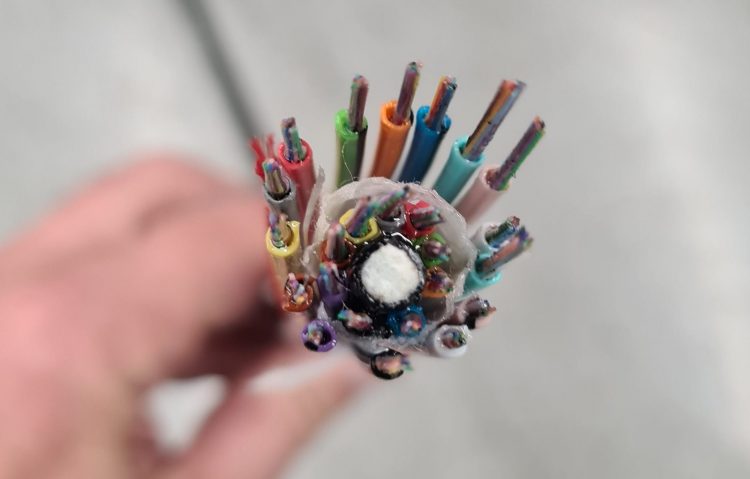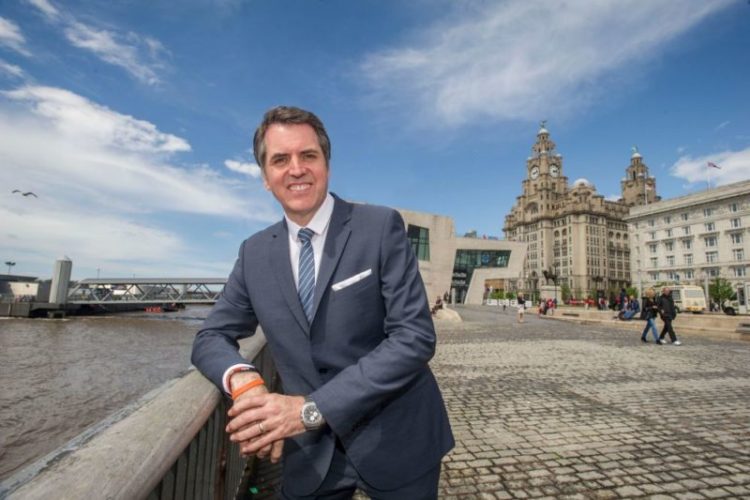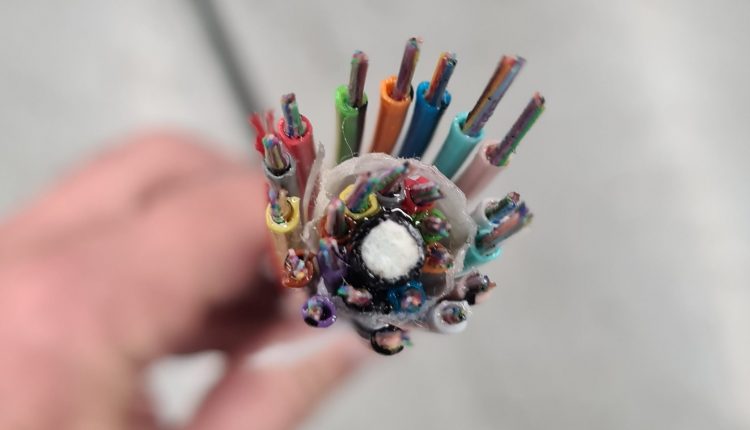A cable just 18mm wide will offer superfast broadband speeds to Liverpool city region businesses and an economic boost worth up to £1bn a year. Tony McDonough reports

Businesses across Liverpool city region will get access to superfast broadband by 2025 that could boost annual output and productivity by £1bn a year.
A £30m public-private partnership between the Liverpool City Region Combined Authority (CA) and North West-based ITS Technology Group, called LCR Connect, is seeing 212km of fibre-optic cable laid across Liverpool, Wirral, Sefton, Knowsley, St Helens and Halton.
Via a cable just 18mm wide and made of tiny glass fibres, businesses will get access to internet speeds of up to 100 gigabits per second (Gbps). To put that in context, speeds of just 1 Gbps make it possible to download an hour-long HDTV show in nine seconds.
Along with construction partner NGE, the joint venture is currently laying fibre-optic infrastructure across the city region. Although initially only available to businesses, the aim is for residential users to eventually benefit from the network.
When complete, it will put city region businesses in prime position to lead the way in a host of growing sectors, from health and life sciences to Artificial Intelligence and advanced manufacturing. It could also potentially transform public services, including transport and health services.
Improving access to broadband is a key plank in the Government’s industrial strategy. While large businesses can afford to invest in dedicated high-capacity internet connections, 99% of the 6m private businesses in the UK are SMEs. The new LCR network will provide a critical piece of infrastructure that will boost productivity.
Over the next two years, the network will be installed beneath carriageways, footpaths and cycle ways across the city region, using innovative ‘dig once’ techniques to minimise the impact on road and public transport users wherever possible. Existing ducts will be reused where possible to avoid disruption.

When LCR Connect was first launched in 2021, Metro Mayor Steve Rotheram said: “Our region was at the heart of the first industrial revolution, and this project can put us at the forefront of the fourth industrial revolution, creating thousands of jobs and ultimately generating £1bn for the local economy.
“It will make us leaders in the industries of tomorrow and will help us attract talent and investment from around the world as others look to take advantage of our skills, infrastructure and expertise.”
What is the cable made of and how fast is ultrafast?
- Fibre-optic cable allows us to have unlimited information at our fingertips and to send it around the globe almost instantly.
- It’s made of glass strands. The cabling is used to transfer information via pulses of light.
- It is surrounded in cladding to protect it – known as the buffer tube – and has an outer casing to make sure the glass fibres are fully protected.
- The largest cable used on LCR Connect project contains 288 individual fibres, which makes an overall diameter of around 18mm.
- The individual fibres are 250 microns, about twice the thickness of a human hair.
- The light that travels along the cable is on a part of the electromagnetic spectrum not visible to the human eye. NEVER look down a fibre cable to check.
- The cables are joined together by a machine called a fusion splicer. The two ends of the glass are heated to around 1800°C which melts them together effectively forming one continuous piece of glass.
- Although only tiny, the fibres have a surprisingly high tensile strength.
- Connectivity speeds are measured in bits per second. The bigger the number of bits per second your connection is capable of, the faster it can send information. The maximum capacity is known as bandwidth.
- In terms of speed, one gigabit per second (Gbps) is equal to 1,000 megabits (Mbps). At 10Mbps it takes around 15 mins to download an hour-long HDTV episode. At 30Mbps it takes 4.5 minutes however with a 1Gbps service, one episode could be downloaded in 9 seconds, or 100 episodes in 15 mins.
- LCR Connect will offer reliable ultrafast connectivity, with speeds ranging up to 100Gbps depending on the service chosen.
- That means downloading and uploading big files will take seconds rather than minutes.

